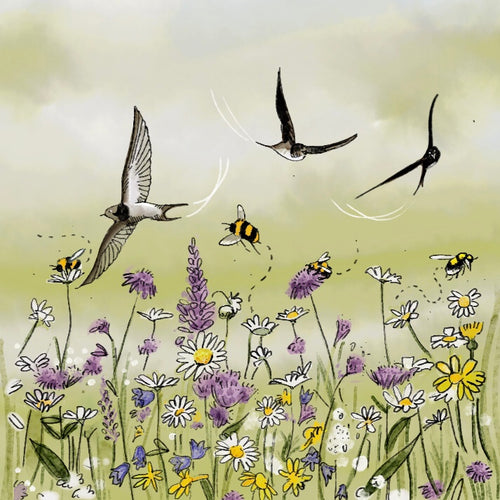
The Cheeky Connotations of 'The Birds and the Bees'
Did you know that September is the most popular month for births in the UK? According to the Office of National Statistics, September 26 has been the most popular day to be born over the last two decades, which falls 39 weeks and two days after Christmas day. The posited reason for this is to get their child in the start of the school year. I propose that it is more to do with getting Christmas festivities out of the way to get the body ready for conception. I know this because I did it twice and managed to produce September and October babies.
It's safe to assume then that January is the most popular month for conception. It's hard not to imagine lots of young couples getting on with it, struggling through dry January. This leads us nicely to the birds and the bees. Why it is a euphemism for 'sex'?
Origin Story
It's always puzzled me. It's predominantly used to save parents the embarrassment of awkward questions about where babies come from, when society was a little more coy. We are encouraged to be a bit more straightforward these days. The origin of its usage is not clear, although it seems to have been well in use from the late 1800s. The first claimed printed publication was by John Burrows in 1875, in his essays titled 'Birds and Bees, Sharp Eyes and Other Papers'. The essays sought to present nature to children in text they could understand.
Other references are found in this beautiful excerpt from Samuel Taylor Coleridge's poem "Work without Hope," which captures the essence of nature awakening in contrast to the poet's inactivity. Coleridge's vivid imagery and rhythmic flow bring the scene to life, making it a timeless piece of literature:
All Nature seems at work. Slugs leave their lair –
The bees are stirring – birds are on the wing –
And Winter, slumbering in the open air,
Wears on his smiling face a dream of Spring!
And I, the while, the sole unbusy thing,
Nor honey make, nor pair, nor build, nor sing.
The song "Let's Do It" by Cole Porter, written in 1928, captures it in a much more engaging way. Here's an extract which refers to it:
And that’s why birds do it, bees do it
Even educated fleas do it
Let’s do it, let’s fall in love
Ooh Matron!
I managed to catch the classic 'Carry on Camping' over Christmas (I'm not sure this film would ever get made these days) where there's a scene where Kenneth Williams admonishes Hattie Jakes for not teaching the young ladies about the birds and the bees. The scene goes like this:
KW: " A fine talk you must've given them on the birds and the bees"
HJ: "Well I'm sorry doctor but when I started talking about them I suddenly realised I didn't have the foggiest idea what they did - well what do they do??"
KW "Bees sting!"
So now you know!...

Sources:
